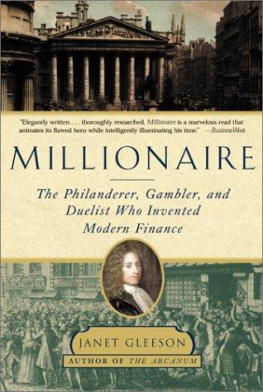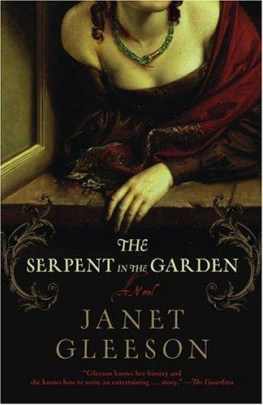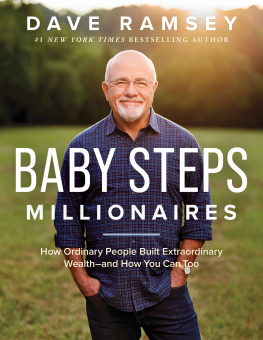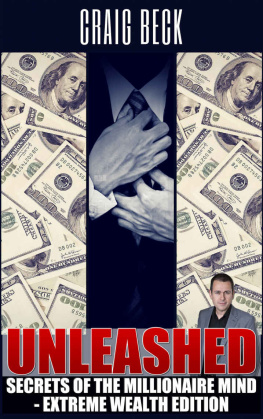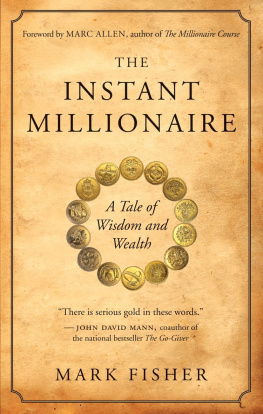I NTRODUCTION
Within the last twenty years commerce has been better understood in France than it had ever before been, from the reign of Pharamond to that of Louis XIV. Before this period it was a secret art, a kind of chemistry in the hands of three or four persons, who actually made gold, but without communicating the secret by which they had been enriched.... It was destined that a Scotchman called John Law should come into France and overturn the whole economy of our government to instruct us.
Voltaire,
Essay on Commerce and Luxury
M ONEY HAS EVER POSED PROBLEMS . N OT EVEN LOVE , said Gladstone, has made so many fools of men. Throughout time the most obvious but universal dilemmathat there is never enough of ithas confounded everyone, from mendicants to monarchs, and their ministers.
Rarely, however, had the problem seemed more pressing than it did in the late seventeenth century. Money, as most people had always understood it, was silver or goldprecious metals whose value lay in their intrinsic scarcity. But the fact that coin supplies were limited by the metal that could be dug out of the ground was proving a serious hindrance. Throughout Europe, warfare of vast scale and expense coupled with the extravagant lifestyles of kings had emptied entire treasuries. At the same time the growing population, expansion of trade, and colonization of foreign lands demanded more cash to progress. As rulers plotted invasions, perused peace treaties, and yearned to sponsor new industry, build new palaces, and develop their domains overseas, money and how to create more of it became an obsession. In an age poised between superstition and enlightenment, it became as fashionable to ponder the subject that would soon be christened political economy as the disciplines of philosophy, mathematics, and nature. While on the one hand alchemists strove futilely to turn base metal into gold, on the other entrepreneurs proposed a plethora of ingenious schemes to sidestep the shortage. At the lowliest level, small-change coins made from base metal alleviated the dearth of coins in the streets. On a grand scale, banks and joint-stock companies used the magical device of credit to fund royal debts and colonial expansion by issuing paper banknotes and shares of token rather than intrinsic worth. Thus the frustrating limitations of gold and silver evaporated, but a new, even more baffling problem emerged: the question of how to maintain public confidence in the value of intrinsically valueless paper.
Among monetary philosophers and innovators to confront the problem, John Law stands alone as the most improbable, controversial, yet visionary of financial heroes. He was big in every sense, over six feet tall with ambitions that were larger and more daring than anyone elses. On one level his story is the stuff of romantic legend. He turned his attention to finance after killing a man in a duel over an unfortunate liaison and escaping prison to save his neck. A congenial gambler, prepared to punt on the turn of a card yet burning with mathematical brilliance, he exuded a glamorous, dangerous magnetism. Women were spellbound by his impeccable dress, charming manner, and sexual charisma. Men were intrigued by the ease with which he was able to demystify complex subjects, his nonchalant wit, and his willingness to linger for hours over games of cards and dice. But his ideas and actions invest his life with far more significance than that of a beguiling and ambitious playboy: the things Law made happen still have resonance today.
In an ironic reversal of the concept of the philosophers stone (the substance by which it was believed gold could be made from base metal), he founded the first national bank of issue in France that made money from paper on a previously unknown scale to revive the ailing economy. He formed the most powerful conglomerate the world had yet seenthe Mississippi Companyand encouraged unprecedented numbers of private investors to dabble in its shares. Once initial hesitation had been banished, investors from England, Germany, Holland, Italy, and Switzerland stampeded to Paris to play the markets, and share prices rose from 150 livres to 10,000 in a matter of months. In comparison, the best bull markets of the twentieth century, between 1990 and 1999, when the Dow Jones rose by 380 percent and the Nasdaq by 790 percent, seem paltry. Law sparked the worlds first major stock-market boom, in which so many made such vast fortunes that the word millionaire was coined to describe them. Almost overnight he had become rich beyond expectation, a heroic figure, fted throughout Europe, and promoted in recognition of his achievement to the position of Frances financial controllerthe most powerful public position in the worlds most powerful nation.
Pioneers, so they say, usually end up with arrows in their backs. In Laws case, enemies, inexperience, greed, and destiny conspired against his unconventional genius. The idea that money could be made from speculation rather than drudgery was printed indelibly on the popular consciousness. But having made their fortunes, many began to look for alternative investments, or to feel that paper was no long-term substitute for more traditional, tangible assets. When speculators began to cash in shares and withdraw paper funds to buy estates, jewels, or gold, or to speculate in other escalating foreign share markets, Law, hampered by jealous rivals, was unable to hold back the tide and the stock plummeted as rapidly as it had risen. People who rushed to the bank to convert paper back into coin found insufficient reserves and were left holding an asset that had become virtually worthless.
Over half a million people, equivalent to two-thirds of the entire population of the city of London at the time, claimed to have lost out as a result of John Law. Having sparked the first international stock-market boom, he had also sparked the first international bust. As loudly as he had been lauded a financial savior months earlier, he was branded a knave and ignobly demoted. Sadder, wiser, immeasurably poorer, he spent the rest of his life unsuccessfully trying to convince the world of his integrity, and that the idea behind his schemes was sound. His fall cast long shadows. It was eighty years before France dared again to try to introduce paper money to its economy. For years afterward history judged Law harshly. In the story of money, the chapter on his life embodies the perils of paper, the monumental significance of his economic foresight largely negated by his ultimate failure.

